Audi Q7 VS Volvo EX30 – Specs, Efficiency & Price Comparison
Which model is the better choice – the Audi Q7 or the Volvo EX30? We compare performance (507 HP vs 428 HP), boot capacity (887 L vs 318 L), efficiency (1.20 L vs 17 kWh), and of course, the price (69300 £ vs 34100 £).
Find out now which car fits your needs better!
The Audi Q7 (SUV) is powered by a Diesel MHEV, Plugin Hybrid, Petrol MHEV or Petrol engine and comes with a Automatic transmission. In comparison, the Volvo EX30 (SUV) features a Electric engine and a Automatic gearbox.
When it comes to boot capacity, the Audi Q7 offers 887 L, while the Volvo EX30 provides 318 L – depending on what matters most to you. If you’re looking for more power, you’ll need to decide whether the 507 HP of the Audi Q7 or the 428 HP of the Volvo EX30 suits your needs better.
There are also differences in efficiency: 1.20 L vs 17 kWh. In terms of price, the Audi Q7 starts at 69300 £, while the Volvo EX30 is available from 34100 £.
Compare all the key specs now and find out which model fits your lifestyle best!
Audi Q7
The Audi Q7 combines luxurious comfort with impressive versatility, making it a standout choice in the SUV market. Its sophisticated design and meticulous attention to detail create an elegant yet robust presence on the road. With advanced technology and a focus on safety, the Q7 ensures a premium driving experience for both the driver and passengers.
details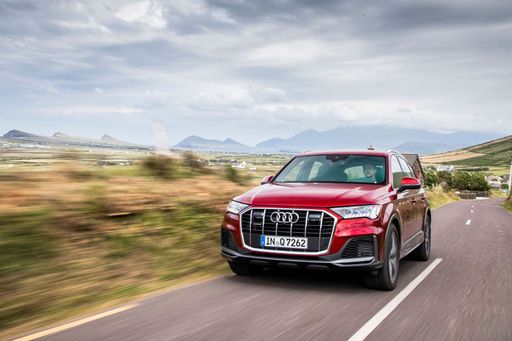 @ audi-mediacenter.com
@ audi-mediacenter.com
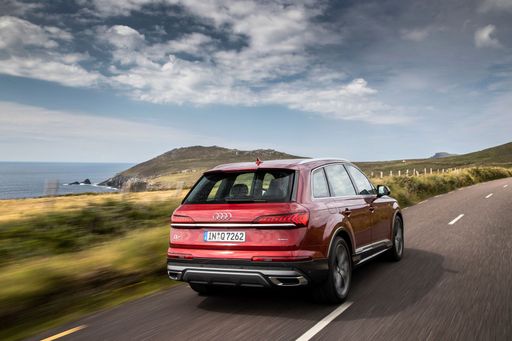 @ audi-mediacenter.com
@ audi-mediacenter.com
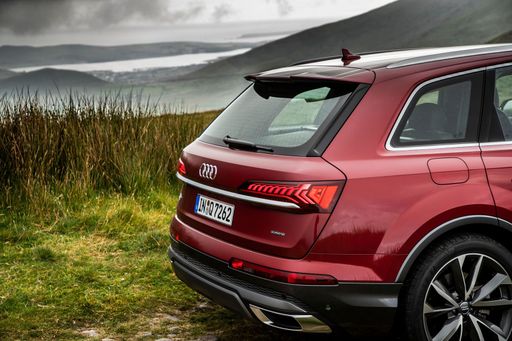 @ audi-mediacenter.com
@ audi-mediacenter.com
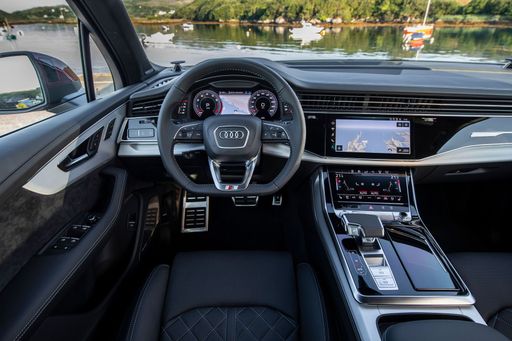 @ audi-mediacenter.com
@ audi-mediacenter.com
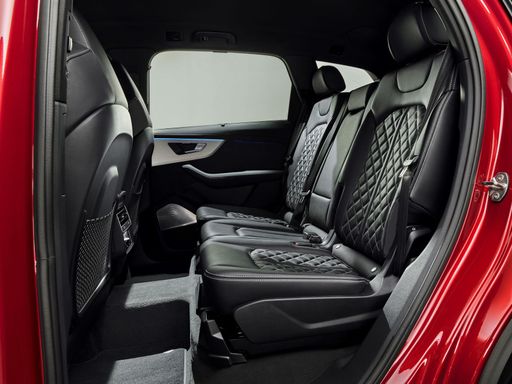 @ audi-mediacenter.com
@ audi-mediacenter.com
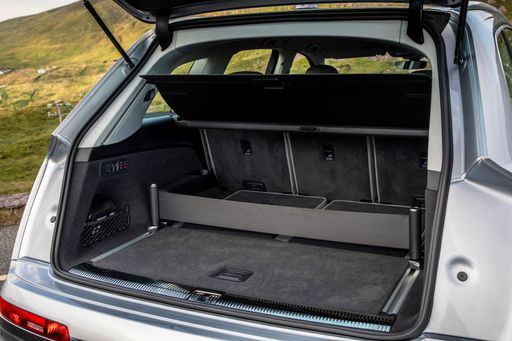 @ audi-mediacenter.com
@ audi-mediacenter.com
Volvo EX30
The Volvo EX30 represents a bold step forward for the brand, combining advanced technology with sustainable design principles. Its sleek and compact exterior belies a spacious interior that offers a premium driving experience. With a focus on safety and innovation, this model reflects Volvo's commitment to shaping the future of urban mobility.
details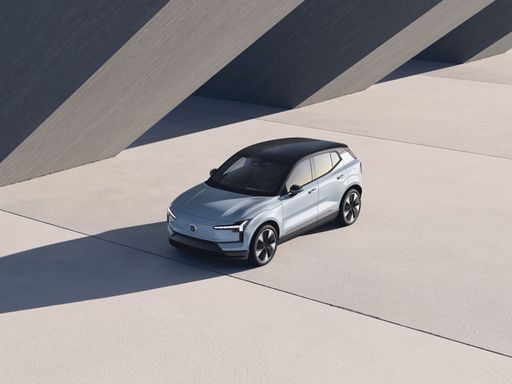 @ Volvo
@ Volvo
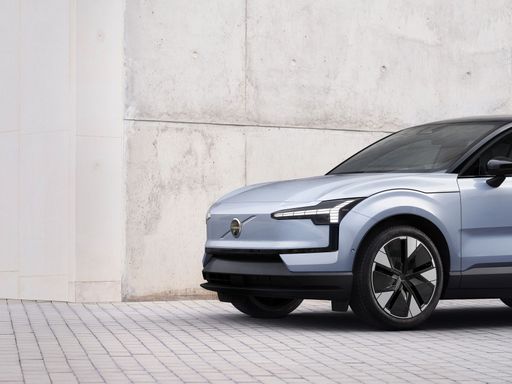 @ Volvo
@ Volvo
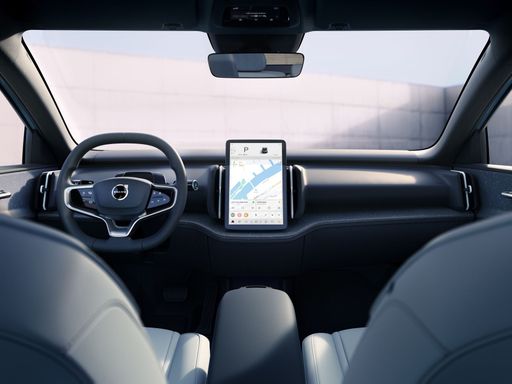 @ Volvo
@ Volvo
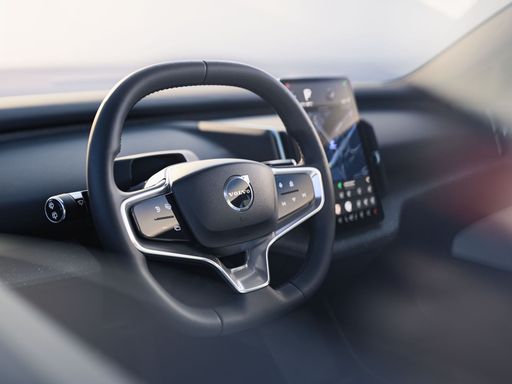 @ Volvo
@ Volvo
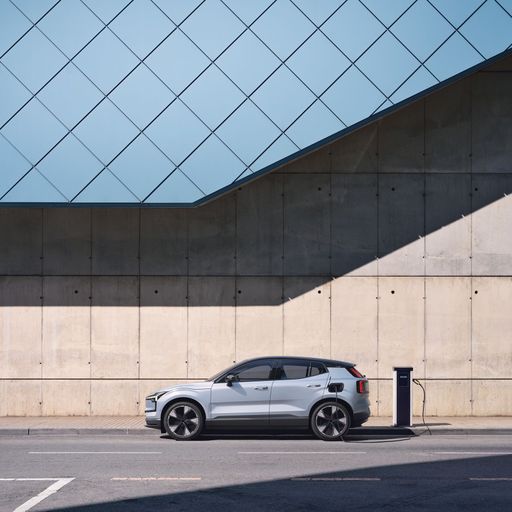 @ Volvo
@ Volvo

|

|
|
|
|
Costs and Consumption |
|
|---|---|
|
Price
69300 - 99000 £
|
Price
34100 - 49100 £
|
|
Consumption L/100km
1.2 - 12 L
|
Consumption L/100km
-
|
|
Consumption kWh/100km
-
|
Consumption kWh/100km
17 - 18.7 kWh
|
|
Electric Range
83 - 84 km
|
Electric Range
339 - 476 km
|
|
Battery Capacity
22 kWh
|
Battery Capacity
49 - 65 kWh
|
|
co2
28 - 272 g/km
|
co2
0 g/km
|
|
Fuel tank capacity
75 - 85 L
|
Fuel tank capacity
-
|
Dimensions and Body |
|
|---|---|
|
Body Type
SUV
|
Body Type
SUV
|
|
Seats
5 - 7
|
Seats
5
|
|
Doors
5
|
Doors
5
|
|
Curb weight
2055 - 2460 kg
|
Curb weight
1840 - 1983 kg
|
|
Trunk capacity
563 - 887 L
|
Trunk capacity
318 L
|
|
Length
5072 mm
|
Length
4233 mm
|
|
Width
1970 mm
|
Width
1837 mm
|
|
Height
1703 - 1735 mm
|
Height
1549 - 1567 mm
|
|
Payload
640 - 885 kg
|
Payload
352 - 390 kg
|
Engine and Performance |
|
|---|---|
|
Engine Type
Diesel MHEV, Plugin Hybrid, Petrol MHEV, Petrol
|
Engine Type
Electric
|
|
Transmission
Automatic
|
Transmission
Automatic
|
|
Transmission Detail
Automatikgetriebe
|
Transmission Detail
-
|
|
Drive Type
All-Wheel Drive
|
Drive Type
Rear-Wheel Drive, All-Wheel Drive
|
|
Power HP
231 - 507 HP
|
Power HP
272 - 428 HP
|
|
Acceleration 0-100km/h
4.1 - 7.1 s
|
Acceleration 0-100km/h
3.6 - 5.7 s
|
|
Max Speed
226 - 250 km/h
|
Max Speed
180 km/h
|
|
Torque
500 - 770 Nm
|
Torque
343 - 543 Nm
|
|
Number of Cylinders
6 - 8
|
Number of Cylinders
-
|
|
Power kW
170 - 373 kW
|
Power kW
200 - 315 kW
|
|
Engine capacity
2967 - 3996 cm3
|
Engine capacity
-
|
General |
|
|---|---|
|
Model Year
2024
|
Model Year
2024 - 2025
|
|
CO2 Efficiency Class
G, B
|
CO2 Efficiency Class
A
|
|
Brand
Audi
|
Brand
Volvo
|
Audi Q7
Audi Q7: A Benchmark in Automotive Excellence
The Audi Q7 continues to hold its ground as a versatile and luxurious SUV, offering a rich blend of cutting-edge technology, impressive performance, and comfort. With its recent facelift, the Q7 introduces innovative elements that cater to modern-day driving demands. Explore the technical details and unique attributes that make the Audi Q7 a class leader.
Engine Options and Performance
The Audi Q7 is available with a range of engine options designed to suit various needs and preferences. These include Diesel Mild-Hybrid, Plug-in Hybrid, and Petrol Mild-Hybrid configurations. The power output for these engines ranges from 231 to an exhilarating 507 PS, catering to both efficiency seekers and performance enthusiasts. The Audi Q7 can accelerate from 0 to 100 km/h in as little as 4.1 seconds, showcasing its athletic performance.
Innovative Technology Integration
The Audi Q7 integrates the latest technological advancements to enhance the driving experience. The intuitive Audi Virtual Cockpit and a comprehensive infotainment system ensure that the driver remains informed and entertained. The vehicle’s mild-hybrid systems significantly improve fuel efficiency and reduce emissions, highlighting Audi’s commitment to sustainability without sacrificing performance.
Advanced Safety and Driver Assistance
The Q7 is equipped with state-of-the-art safety features and driver assistance systems to ensure peace of mind on the road. Audi Pre Sense, adaptive cruise control, lane-keeping assist, and a 360-degree camera system work seamlessly together to help prevent accidents and enhance the driving experience.
Design and Interior Comfort
With its bold, sophisticated design, the Audi Q7 is both robust and stylish. The SUV offers configurations for five to seven seats, making it adaptable for families and groups. Meticulously crafted materials, adjustable seating, and advanced climate control systems provide a comfortable environment, even on long journeys.
Environmental Efficiency
The Audi Q7’s environmentally conscious engineering includes models with CO2 emissions as low as 28 g/km. For those opting for the Plug-in Hybrid variant, an impressive electric range of up to 84 km ensures emission-free mobility for daily commutes, reinforcing Audi's commitment to a sustainable future.
Conclusion
The Audi Q7 embodies a sophisticated blend of power, technology, and luxury, making it a standout in its class. Whether you’re looking for a spacious family vehicle, a tech-savvy companion, or a robust performance SUV, the Q7 delivers at every front, proving why it remains a popular choice for discerning drivers.
Volvo EX30
Unveiling the Volvo EX30
The automotive world is buzzing with excitement over the release of Volvo's latest electric vehicle: the Volvo EX30. This all-new addition to Volvo's lineup showcases the company's commitment to sustainability and innovation in the world of SUVs. Designed with precision and equipped with cutting-edge technology, the Volvo EX30 offers a compelling blend of performance, efficiency, and advanced features.
Technical Mastery Under the Hood
The Volvo EX30 comes with a range of powertrains to suit different driving preferences. Consumers can choose between the Single Motor and Twin Motor variants, with power outputs ranging from an impressive 272 PS to a robust 428 PS. The Twin Motor Performance version guarantees thrilling acceleration, reaching 0-100 km/h in just 3.6 seconds, making it one of the quickest electric SUVs available.
The EX30's efficiency is equally noteworthy, with an energy consumption rate starting at just 17 kWh/100km. Coupled with a battery capacity ranging from 49 to 65 kWh, this vehicle offers an impressive electric range spanning between 339 km and 476 km, depending on the chosen configuration.
Innovative and Sustainable Design
Volvo continues its quest for sustainability with the EX30, as evidenced by its zero CO2 emissions, contributing to a cleaner environment. The car's design prioritises both environmental consciousness and modern aesthetics, featuring recycled materials in its construction, without compromising on luxury or style.
Inside the cabin, the EX30 provides comfort and sophistication for up to five passengers, ensuring ample space and modern conveniences. The cabin's focus on ergonomics and understated luxury ensures that every journey is a pleasure.
Safety and Technology at Its Core
As with all Volvo vehicles, safety is paramount. The EX30 is no exception, equipped with an array of advanced safety features including state-of-the-art driver assistance systems to ensure maximum security on the road.
Furthermore, the vehicle's infotainment system is designed to provide seamless connectivity and entertainment options for the tech-savvy driver. The integration of intuitive controls and a responsive interface makes operating the vehicle's features an effortless experience.
Conclusion
The Volvo EX30 sets a new benchmark for electric SUVs, combining impeccable performance with sustainability and innovation. With a competitive price range of €39,790 to €55,290, this vehicle offers excellent value for those looking to embrace the future of motoring. Whether it's the cutting-edge technology, thrilling performance, or eco-conscious design, the Volvo EX30 is poised to become a leader in the electric vehicle market.
The prices and data displayed are estimates based on German list prices and may vary by country. This information is not legally binding.
